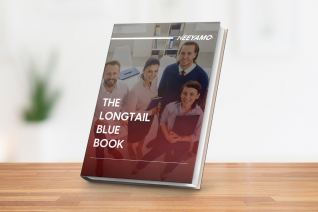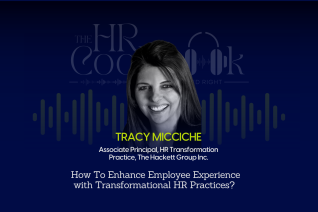Establish your presence globally with Neeyamo as we help you go beyond borders to manage your international payroll services and hire new talent in Denmark.
Overview
Situated in Northern Europe, Denmark stands as the southernmost Scandinavian nation. Sharing its sole land border with Germany, Denmark is renowned for offering diverse services and products, with a notable emphasis on the salt and limestone industry.
While Denmark's historical reputation lies in its agricultural sector, the current flourishing state of the production sector has businesses scrambling to begin operations there. Organizations looking to hire local talent in Denmark don't always need a physical entity or a local provider to manage their payroll.
Neeyamo – Global Payroll Services provides assistance for the onboarding and management of employees in Denmark, along with processing a firm's payroll, compliance, benefits, and more.
Our Presence
Tools And Instances
Facts And Stats
Capital
Copenhagen
Currency
Danish Krone
Official Language
Danish
Fiscal Year
1 January to 31 December
Date Format
DD/MM/YYYY
Country Calling Code
+45
Time Zone
Central European Summer Time GMT+2
Global Payroll
Overview
Handling payroll for a widespread workforce can pose a significant challenge for any organization, and the added complication of compliance can make things worse. If companies spend more time processing payroll, it directly impacts day-to-day operations and their overall productivity.
Over the years, Neeyamo has observed these complexities and strived to provide a global payroll solution through a single technology platform - Neeyamo Payroll. Neeyamo's global payroll system eases the process for companies looking for outsourced payroll providers and aids them in maneuvering the tricky payroll system in Denmark. Neeyamo's payroll software provides the perfect solution for all your global payroll needs – for employees working in primary geographies, the long-tail region, remote or internationally located.
Payroll Taxes
Payroll tax is the percentage amount retained from an employee's salary and paid to the government to invest in the welfare of the general population.
What is a payroll system?
A Payroll System acts as your personalized Payroll Calculator. Ensuring adherence to local regulatory requirements using multi-level controls. Providing timely and accurate payroll, courtesy of our experts worldwide and using a tech-based integrated smart helpdesk solution with seamless support experience manned by payroll experts – a payroll system like Neeyamo's has all your payroll needs covered.
Employee Taxes
Employee contribution:
- Social Security (ATP)- 1,135.80 DKK p.a
- Employee Income tax- 139.721DKK
Employer Taxes
Employer Payroll Contributions
- Mandatory Social Security - 2,271.60 DKK (annually)
- Public Social Security- 5,300.00 DKK
- Industrial injuries Insurance- 5,000.00 DKK
- Employer Contribution to Maternity Leave Fund- 1,150.00 DKK
- Total employment cost is 13,721 DKK
Payroll Cycle
Overview
Undoubtedly, payroll is a critical process for any organization. Pay cycle in Denmark refers to the period for which an organization pays its employees, and this can vary depending on the pay frequency that the organization chooses to adopt.
Frequency
In Denmark, it is common for employees to be paid on a monthly basis.
13th Month Cycle
Not mandatory in Denmark, however employees get bonuses in year end.
Global Work
Overview
What is Employer of Record?
An Employer of Record (EOR) service provider helps you eliminate the hassle of handling complexities while onboarding a new employee in an international location. They help bridge the gap that otherwise mandates organizations to have a local registered entity and a local bank account prior to making a job offer to an international hire.
An EOR service provider acts as a legal employer, facilitates salary payments, and manages other statutory requirements such as health insurance, payroll taxes, and employee benefits, ensuring compliance with local tax laws and regulations.
The presence of EOR technology allows organizations to focus on collaborating with the employees in Denmark for operational tasks, with the knowledge that they have a cost-effective solution to support their global payroll & HR requirements as they continue their global expansion.
HR Mandates and Practices
Minimum Wage
The government of Denmark introduced temporary changes to its international recruitment strategy for foreign nationals under the Fast-Track scheme and the Pay-Limit scheme. Effective 1 December 2022, the new gross minimum salary requirements will be reduced from DKK 448,000 to DKK 375,000 for both schemes. These temporary measures will remain valid for a period of three years.
Overtime
All work more than the standard working hours a week is to be paid as overtime and is regulated by the employment contract or collective agreement. If the employee is hired for a fixed number of working hours, he or she can usually take time off in lieu of overtime pay for each hour of overtime worked. All collective bargaining agreements have rules on overtime payment. The most typical model is 50% for the first three hours and 100% for all subsequent hours and Sundays and public holidays.
Data Retention Policy
The following information must be kept for each employee for a minimum of five years:
- name,
- date of birth
- tax registration number,
- address,
- records of wages paid (including overtime, bonuses and tax-free reimbursements) and the calculation and withholding/payment of taxes.
If an employee is terminated, records of employee notification, correspondence with the competent authorities regarding dismissal, outplacement, and calculations of termination payments.
Hiring and Onboarding Requirements
Hiring
Job ads that state information about the company and the duties of the candidate. Specify if any company seeks applicants to submit their materials in English.
Once the candidate is identified, the job offering and employment contract are submitted to the candidate.
The employment contract must contain the name and address for both employer and employee, workplace location, job title or description, start date, the expected duration for permanent positions, policies regarding holidays and holiday pay, terms of notice for employee and employer, salary, any other wages, and frequency of paychecks, typical working hours, Information on any collective agreements that apply.
Onboarding
- Paperwork and documents are collected, which are required for various processes in a company such as registration, benefits to be given, and HR purposes.
- Every company has a different policy with their onboarding purpose; usually, it’s a brief about the company and answering questions from the freshly hired employee.
The following information is required during onboarding:
- Name of Candidates
- Address
- Date of Birth
- Tax Registration Number
- Work Permit
- Copy of Identification
Probation
The probationary period in Denmark is dependent on the type of role and is stipulated within the employment agreement. In general, probation periods are up to three months.
Leave
Public Holiday
Denmark observes the following public holidays:
- Jan 1: New Year
- Apr 6: Maundy Thursday
- Apr 7: Good Friday
- Apr 9: Easter Sunday
- Apr 10: Easter Monday
- May 5: Prayer Day
- May 18: Ascension Day
- May 28: Whit Sunday
- May 29: Whit Monday
- Dec 25: Christmas Day
- Dec 26: Second day of Christmas
In addition to these, holidays like Good Friday and Easter
Abolition of common prayer day public holiday 2024:
With effect from January 1, 2024, Denmark proposed to reduce Great Prayer Day as a public holiday, replacing it with an ordinary extra working day on the fourth Friday after Easter. Employees with longer working hours due to the holiday abolition will receive payment for the extra working day. A pay bonus equals the value of a normal workday, calculated as 0.45% of the annual salary, and is paid to wage earners with a fixed monthly salary.
Sick Leave
The first 30 days of sickness are usually paid by the employer. For employees who are not entitled to full salary during sickness, this only applies if the employee has been continuously employed by the employer for the last eight weeks and has worked for at least 74 hours.
After the employer period, the municipality will reimburse or cover the sickness benefit if the relevant conditions are met, including that the employee has been in employment and has worked for at least 240 hours within the latest six calendar months, and that during at least five of those months has been employed for a minimum of 40 hours each month.
The sickness benefit is calculated based on the employee’s hourly pay and weekly working hours. The highest rate of sickness benefits is currently DKK4,460 per week or DKK120.54 per hour.
Paternity Leave
The father is entitled to take two weeks of paternity leave during the mother’s 14-week period of maternity leave. There is no legal obligation for the employer to pay salary during paternity leave. However, it is common practice in Denmark under collective agreements and under some individual agreements that employees receive full salary from the employer for a certain period during leave.
Maternity Leave
A pregnant employee is entitled to 18 weeks of maternity leave, four weeks preceding the due date, and 14 weeks after the birth, where the first two weeks are mandatory.
Employees who meet statutory eligibility requirements are covered by the Danish Salaried Employees Act and are entitled to 50.00% of their regular salary from the employer for four weeks before the expected date of birth until 14 weeks after the actual date of delivery.
Parental Leave
Following the initial 14 weeks of maternity leave, each parent has the right to take up to 32 weeks of leave. This time can be extended by either 8 or 14 weeks. However, this will decrease the amount of parental allowance received monthly. One of the parents may choose to defer between 8 to 13 weeks of leave, which can be kept for a continuous period before the child is one year old.
During the parental leave (14 weeks after receiving the child), adoptive parents are entitled to leave to the same extent and regulation as biological parents.
Other Leave
Bereavement leave:
There's no statutory bereavement leave. Any pay or leave is at the employer's discretion.
Carer’s leave:
Employees have the right to time off to care for a close relative who is dying, is seriously ill, or disabled. The government is responsible for the carer's leave pay during such leave. If employers have already paid the employee's salary for the month, they can be reimbursed by the government, equivalent to the allowance.
Force majeure leave:
Employees are entitled to unpaid leave as a result of a relative's illness or accident.
Termination
Overview
-
Employers can terminate a fixed-term contract for the following reasons – business, personal, or worker misconduct. It requires notice and a written explanation for the termination. If the reason is misconduct, a warning needs to be given, and the employee gets a chance to explain their actions.
-
The date of Resignation/Termination must be reported in the month the employee resigns.
-
When an employee terminates employment, then one must give either one month or one calendar month's notice. An exception is made if the work carried out is of a short nature and does not extend over one month or if the working relationship is a trial and does not extend beyond three months.
Grounds for termination
-
Employment terminated in the event of sickness. Your employment contract describes what the rules are at your workplace. For example, if you are employed under the funktionærloven/ salaried employees Act the following applies: if you are ill for more than 120 days in a twelve-month period, and sometimes even earlier, you risk your employment being terminated.
-
On grounds of misconduct.
Notice Period
In accordance with the labor law in Denmark, the notice period is dependent on the length of employment. In general, the notice period is between one and six months.
The Act of Employment
- 12 years seniority = 1 month allowance
- 17 years seniority = 3 months allowance
The allowance must include:
- Salary
- Benefits
- Fixed supplements
- The company pension share
No vacation allowance or pension of the allowance is calculated, and the allowance has a tax benefit of 8.000 DKK
Severance Pay
A salaried employee who has worked for the same company for over 12 years or in the case of an employee’s dismissal for economic reasons, the employee is entitled to the following severance pay scheme
- 1 month’s salary, if the employee has more than 12 years of seniority at the time of expiration of the notice period.
- 2 months’ salary, if the employee has more than 15 years of seniority at the time of expiration of the notice period, and
- 3 months’ salary, if the employee has more than 18 years of seniority at the time of expiration of the notice period.
Visa
Overview
Danish law provides many options for employers of foreign nationals. Denmark is a member of the European Union (EU) and the Schengen Area. Nationals of Finland, Iceland, Norway, and Sweden are free to reside, study and work in Denmark.
However, suppose the employee is an EU/EEA or Swiss citizen and intends to live in Denmark for more than three months. The employee must apply for a registration certificate at the International Citizen Service or the State Administration (in Danish: “Statsforvaltningen”) upon arrival in Denmark.
Employers must meet the new threshold for new work permits under the Pay Limit scheme as of 1 Jan. 2022. Extensions of existing work permits may continue to use salaries from the initial application.
If the employee is a citizen of a country outside the EU/EEA or Switzerland, the employee must apply for a residence and work permit before entering Denmark. Suppose the employee already resides legally in Denmark. In that case, the employee can submit their application for a residence and work permit at newtodenmark.dk, at a Danish police station, or at the Citizen Centre of the Danish Agency for International Recruitment and Integration.
Immigration Laws
- With effect from 1 Apr. 2023, the number of full-time employees needed to qualify for Fast Track certification has been reduced from 20 to 10.
- Foreign nationals who have successfully completed a Danish professional bachelor’s graduate or doctoral program in Denmark are automatically granted a three-year period during which they may work or look for employment.
Employee Background Checks
Legal and Background Checks
-
Police background check: Private criminal records can only be obtained by the concerned individual from the national police. The applicant must obtain and submit their criminal record to the employer.
-
Medical Check/medical history: Depends on the requirement of the job. Medical history can only be required if it is in any way relevant to the job description. Drug screening falls under medical check. Employees cannot be ordered to submit a drug test if it is not relevant to their future job. A female applicant is not required to disclose pregnancy as this might lead to a discrimination lawsuit.
-
Credit History: Depends On the requirement of the job. In Danish practice, credit checks and full disclosure of their financial situation is only required for people who will have access to and handle the company's fund.
- Social Media checks- Yes
- Immigration status- Yes, employers are required to verify if a foreign national has the right to work in the country. Failure to do so and hiring an illegal immigrant is punishable by heavy fines.
Last updated on August 22, 2023
If you have any queries or suggestions, reach out to us at irene.jones@neeyamo.com
Haben Sie Fragen? Nehmen Sie Kontakt mit uns auf
Wenden Sie sich an einen unserer Experten und machen Sie eine kurze Demo unserer Dienstleistungen








